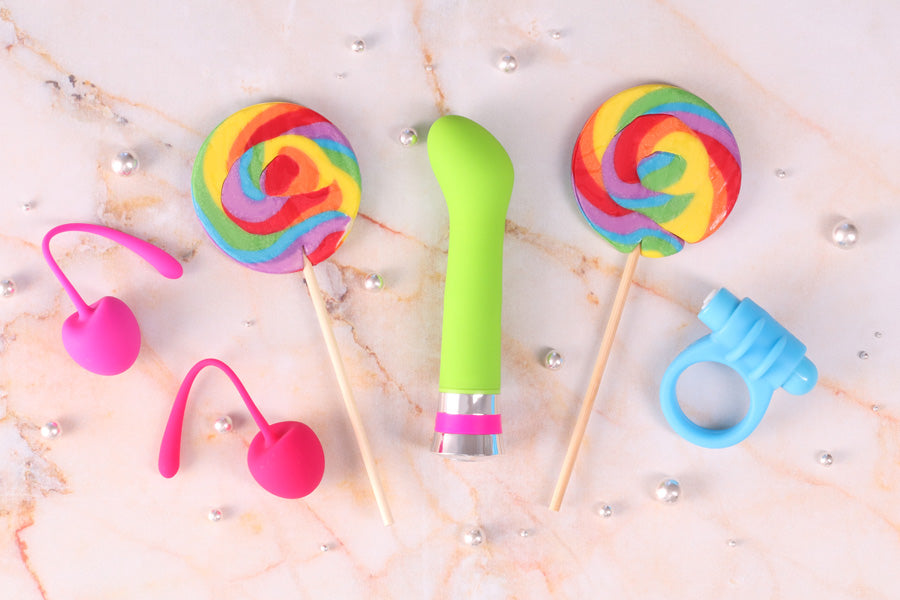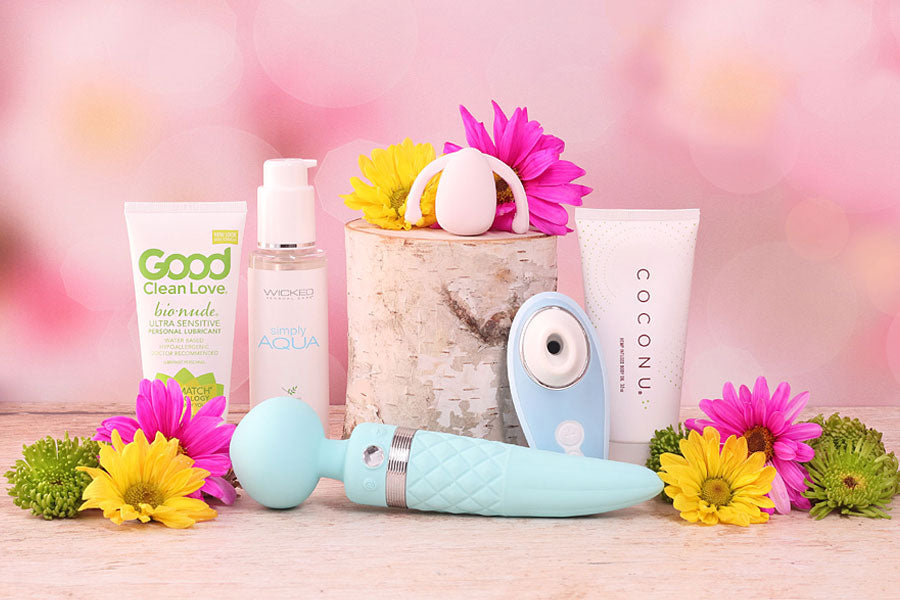Trusted for 24+ Years
Natural & Organic Lubricants

Dr. Lisa Lawless, CEO of Holistic Wisdom
Clinical Psychotherapist: Relationship & Sexual Health Expert

What Are Organic Lubricants?
To better understand organic lubricants, we must begin by exploring what constitutes organic ingredients. Organic produce is grown in the absence of chemical pesticides, herbicides, fungicides, and fertilizers. Organic agriculture practices cannot ensure that products are completely free of residues; however, methods minimize pollution from the air, soil, and water.
Organic lubricants must contain at least 95% organically produced ingredients (excluding water and salt) to be labeled as organic. For example, if you look at the ingredients of one of our organic lubricants below, you can see that most ingredients are organic, but the potassium sorbate and citric acid are not because they are lab-created synthetic chemicals that would not qualify as organic. Keep in mind that synthetic compounds are not necessarily harmful to you and can actually be healthy.
Example Of Organic Lubricant Ingredients:
Organic Aloe Barbadensis Decolorized Leaf Juice (reconstituted), Organic Agar Agar, Organic Guar Gum, Natural Tocopherols (Vitamin E), Organic Hibiscus Extract, Organic Flax Extract, Organic Green Tea Extract, Organic Sunflower Seed Extract, Potassium Sorbate, Citric Acid
What Does Certified Organic Mean?
Labels that read "certified organic" tell the customer the organic lubricants they purchase have been verified as organically grown by an independent third party. These third-party agencies must enforce, at a minimum, the standards set by each state's Organic Foods Act.
Certified produce meets standards beyond those set in the state law. To be certified, growers undergo farm inspections, including soil nutrient analysis. They also must document all crop and soil inputs. They must develop soil fertility and pest control plans. The grower plans to deal with the pest problems without resorting to prohibited materials. Certified organic growers must keep complete yield, harvest, and sales records, undergo at least two inspections before certification and, after that, annual inspections to verify that they meet requirements. To see if a producer is organic, you can ask the grower or the retailer to show you a current certificate.
Why Is Organic Certification Necessary?
Certification protects consumers from fraud. Consumers who buy any produce, including organic lubricants, with the "Certified Organic" seal know the growers of the products meet stringent standards of production and record keeping. Although growers may claim their produce is organic without certification, the extra step assures you that the grower has been required to document and demonstrate the organic claim. Certified organic growers can provide backup documentation on many aspects of their members' growing practices.
The Federal Organic Law (which will tentatively be implemented within a year or so) outlines the minimum standards by which all certifiers must evaluate organic growers. However, until that law is implemented, standards will vary among certifiers. You should feel free to ask the certifying agency what standards they use. Different agencies may share different amounts or levels of information. If you are interested, you can always ask which records are available to you and be aware that the more you know, the more you can assure yourself of the authenticity of organic claims.
Is No Spray Or Pesticide-Free The Same?
No. These claims usually mean the edible parts of a crop have not been sprayed with pesticides. However, synthetic fertilizers, insecticides, and fungicides may have been used to grow the food. There is no legal definition for these claims (and no certification process).
What Does Residue-Free Mean?
Residue-free means a laboratory analysis (often of a randomly sampled lot) detected no pesticide residues on a particular food. Not all chemicals are tested for, and some tests for chemicals are too costly to use in such a program. Residue-free produce is NOT organic because it may have been grown using synthetic chemicals and methods that don't meet requirements for organic production. The residue-free claim is not regulated; tests of the product are random, and there is no assurance the producer of a residue-free product has any commitment to building and nurturing the soil or avoiding the use of synthetic chemicals.
Do Not Use Natural Honey To Balance pH Levels
There have been claims that one can use honey to help balance vaginal pH levels based on honey having antimicrobial properties. However, using honey in the vaginal area is not recommended as it contains natural sugars and can encourage yeast growth, which can lead to a yeast infection. It is far better to use a pH-balanced lubricant, and if there are health concerns with an imbalance, review your specific health care needs with a physician.
Do Organic Ingredients Cost More?
Organic lubricants do not always cost more, but it varies from brand to brand, which can have to do with the quality of their ingredients as well. Organic lubricants can cost more because organic production costs and risks are higher. Organic farmers often pay higher costs for environmentally friendly farming practices such as beneficial insects and hand weeding.
All organic farmers must pay for state registration; certified organic farmers also pay for certification costs. Furthermore, the price of conventional food does not include the cost of dealing with the health and environmental impacts of conventional farming. When you buy organic lubricants, you invest in your health and a system of agriculture that benefits the land and is committed to leaving a legacy only of clean ingredients and healthy soil and earth.
In Closing
Certainly, natural and organic lubricants are ideal for sexual health and wellness, and it is why we carry only the best organic lubricants on the market. However, keep in mind that there are a lot of other factors that make a lubricant healthy or unhealthy. Learn what these are through our Ultimate Lubricant Guide, Paraben-Free Lubricant Guide and Vaginal Dryness Remedies.





